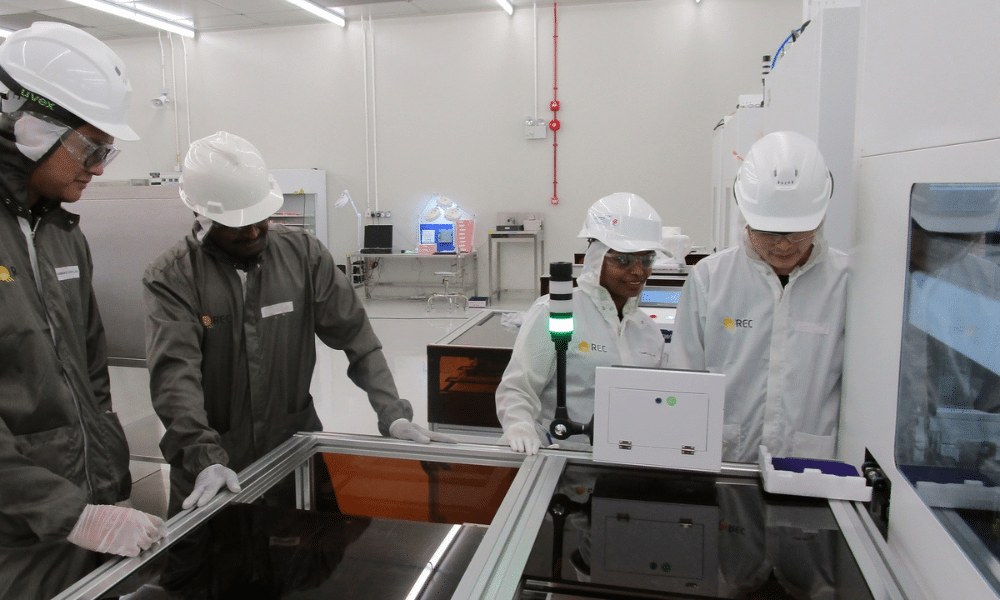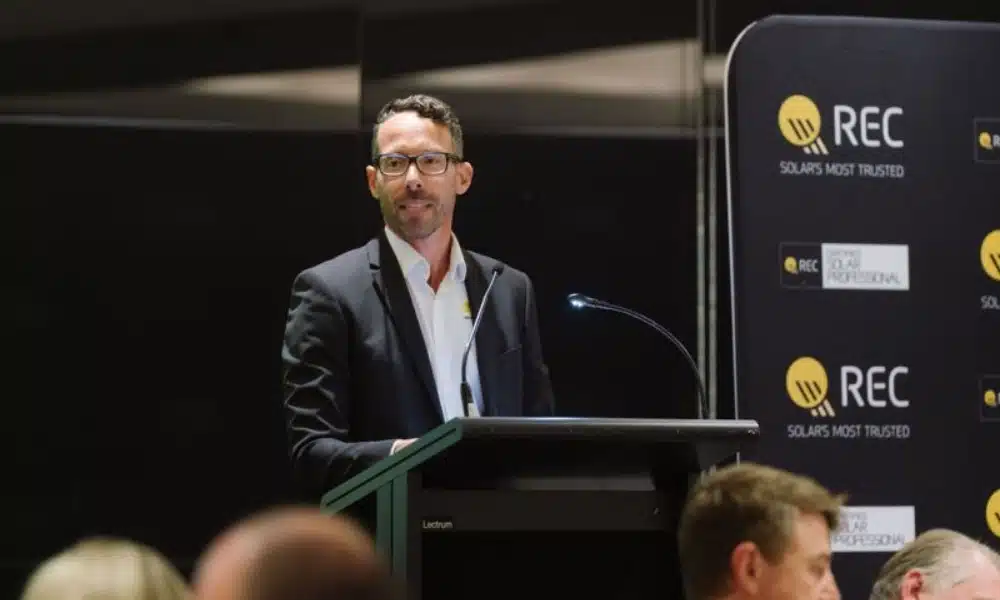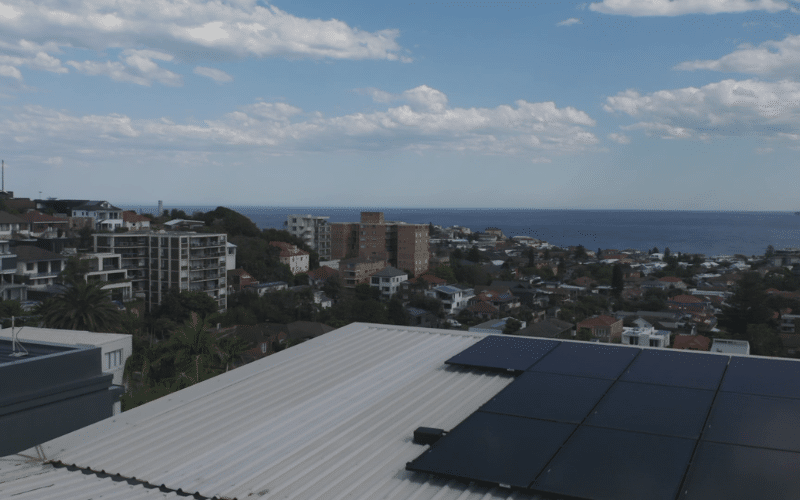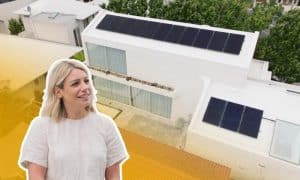Solar energy will contribute towards the decarbonisation of the energy system and combat the challenges of global warming by reducing our reliance on fossil fuel electricity.
According to a study by REC Group, in order for solar energy to make a contribution towards limiting the global temperature increase to 1.5°C, we will need to install the equivalent of approximately 1.2 to 1.5 billion solar panels of 400 Wp power every year.
In our race towards installing more solar panels to harvest energy, the solar industry needs to ensure that solar panels don’t become a problem in the future when it has reached the end of their life. The industry needs to consider how it can deliver this through new product innovations that combine the development of higher efficiency solar panels with longer-lasting performance along with sustainable manufacturing practices.
Producing solar panels for the long-term
The International Renewable Energy Agency (IRENA) has predicted that large amounts of solar PV panels will end up in the waste stream by the early 2030s as the adoption of rooftop solar grows. At the heart of sustainable design, the industry is responsible for creating products that are built to last and perform reliably through the entire product lifecycle. By creating solar panels that will last and perform for decades, we will significantly reduce the amount of waste that is sent for recycling or to landfill.
To extend the lifespan of solar panels, we need to consider how solar panels should be designed to withstand severe weather conditions. By introducing support bars at the back of panels, for example, manufacturers can ensure their panels can withstand heavy snow or wind loads of up to 7,000 Pascal.
Innovative design and technology combined with stringent testing will guarantee that solar panels reliably maintain high energy yields throughout their lifetime, providing peace of mind for customers. Solar panels by top manufacturers should have a 25-year product and performance warranty and guarantee at least 92% of nameplate power for 25 years.
Producing panels that are fit for recycling
While Australia has a high rate of adoption of solar, it will also pose a problem in the future when it comes to the end of life for solar panels. A study by Macquarie University has forecasted there would be one million tonnes of photovoltaic waste in Australia by 2047. This challenge has been recognised and the Federal Government is looking into legislation on the recycling of solar panels.

As we look for a viable solution, we need to investigate how solar panels can be fully recycled to recover materials such as glass, aluminium, and plastics to copper and return this for industrial production.
The impact of toxic chemicals in manufacturing
The RoHS Directive (“Restriction of the Use of Certain Hazardous Substances in Electrical Equipment”) limits the use of hazardous substances in electrical and electronic equipment. However, solar PV panels are exempt from this regulation and it has allowed hazardous substances such as lead to be used in the production of solar panels.
Most solar panels contain a small amount of lead as this is used in soldering. Solar panels that use silicon wafers, which make up approximately 90% of the market, can contain around 24 grams of lead in a panel.
Lead released into the environment can make its way into the air, soil, groundwater and food which is toxic for humans and animals. The disposal of a solar panel that contains lead can cause lead leakage into the ecosystem, putting the environment in danger.
Leading a future without lead
REC has been championing a lead-free future in the solar industry by setting the pace for more sustainable solar and in 2019, REC switched to making lead-free solar cells. With the launch of the REC Alpha Pure solar panel in 2021, REC removed lead from all other soldered components, cross-connectors, junction boxes and connectors. REC uses lead-free components and REC’s Alpha Pure solar panels have been independently tested by a third party to confirm that it is lead-free and RoHS-compliant.

Gus Paviani, Country Manager of REC Solar ANZ said, “From a pure manufacturing and cost perspective, lead in soldering makes production easier. However, considering the impact to the society and environment, getting rid of lead in solar panels is worth the extra mile and simplifies the recycling of solar panels at the end of life.”
This is why it is important to consider solar panels that are designed with the environment in mind during the product development lifecycle. Eliminating lead and other hazardous materials makes the recycling of solar panels far easier. However, the solution isn’t about creating a product that needs to be recycled but rather, focusing on designing a product that has a longer lifespan, performs efficiently, and reduces the use of resources when it’s manufactured. Businesses and homeowners who want to play their part in mitigating climate change can choose responsibly made solar panels that will make a positive impact and lower their environmental footprint.
See here how REC is contributing today for a better tomorrow: www.recgroup.com/csr
Learn more about REC’s award-winning Alpha Pure Series here: www.recgroup.com/alpha












































